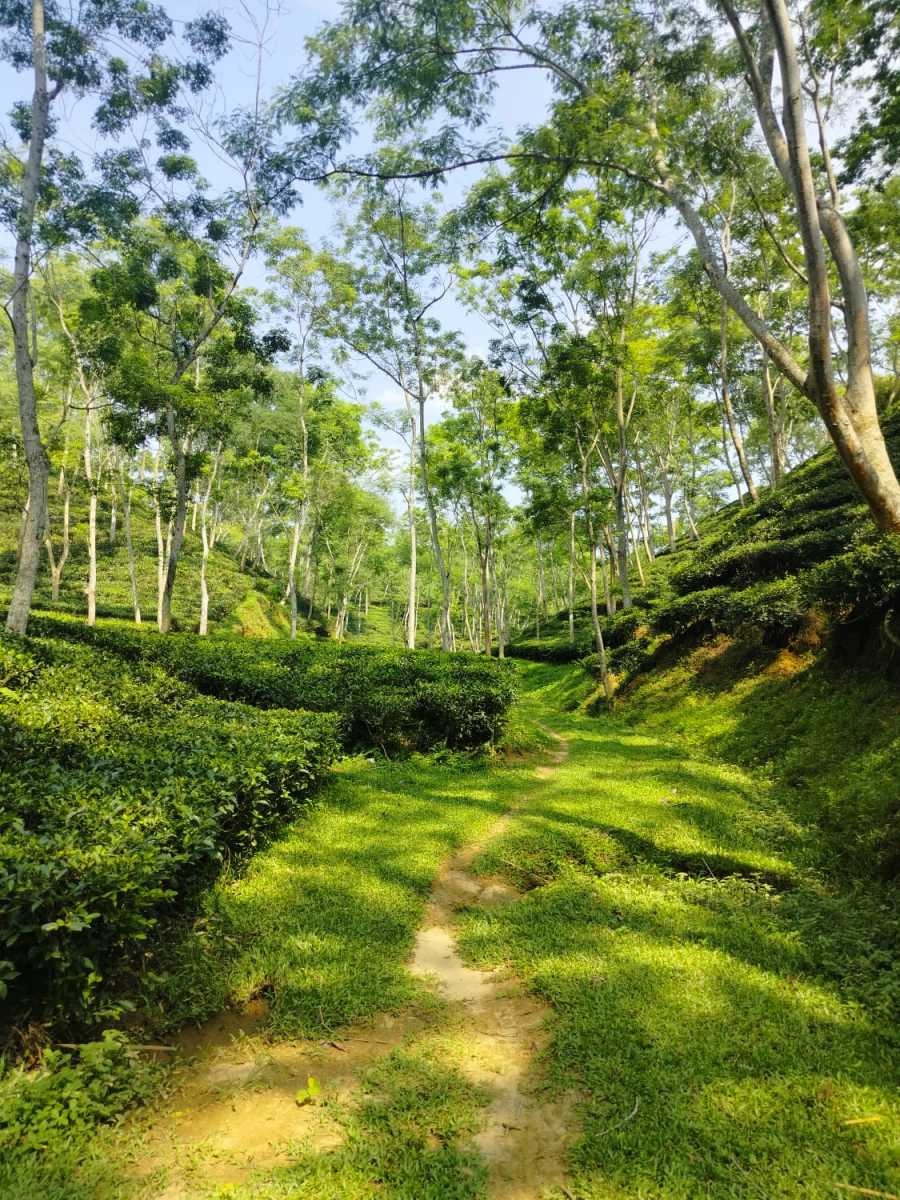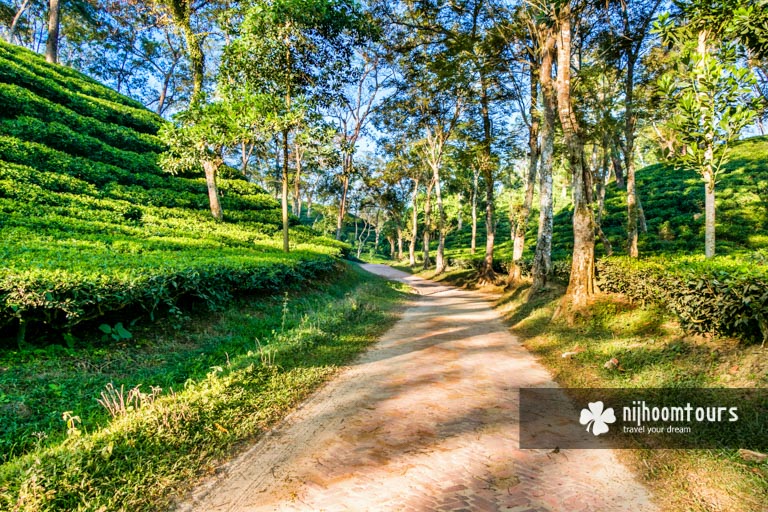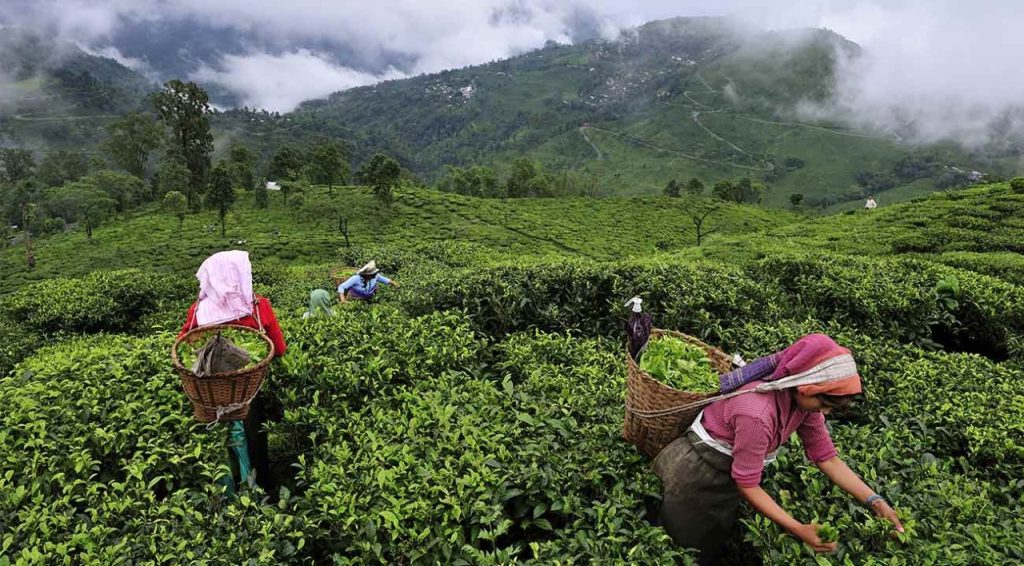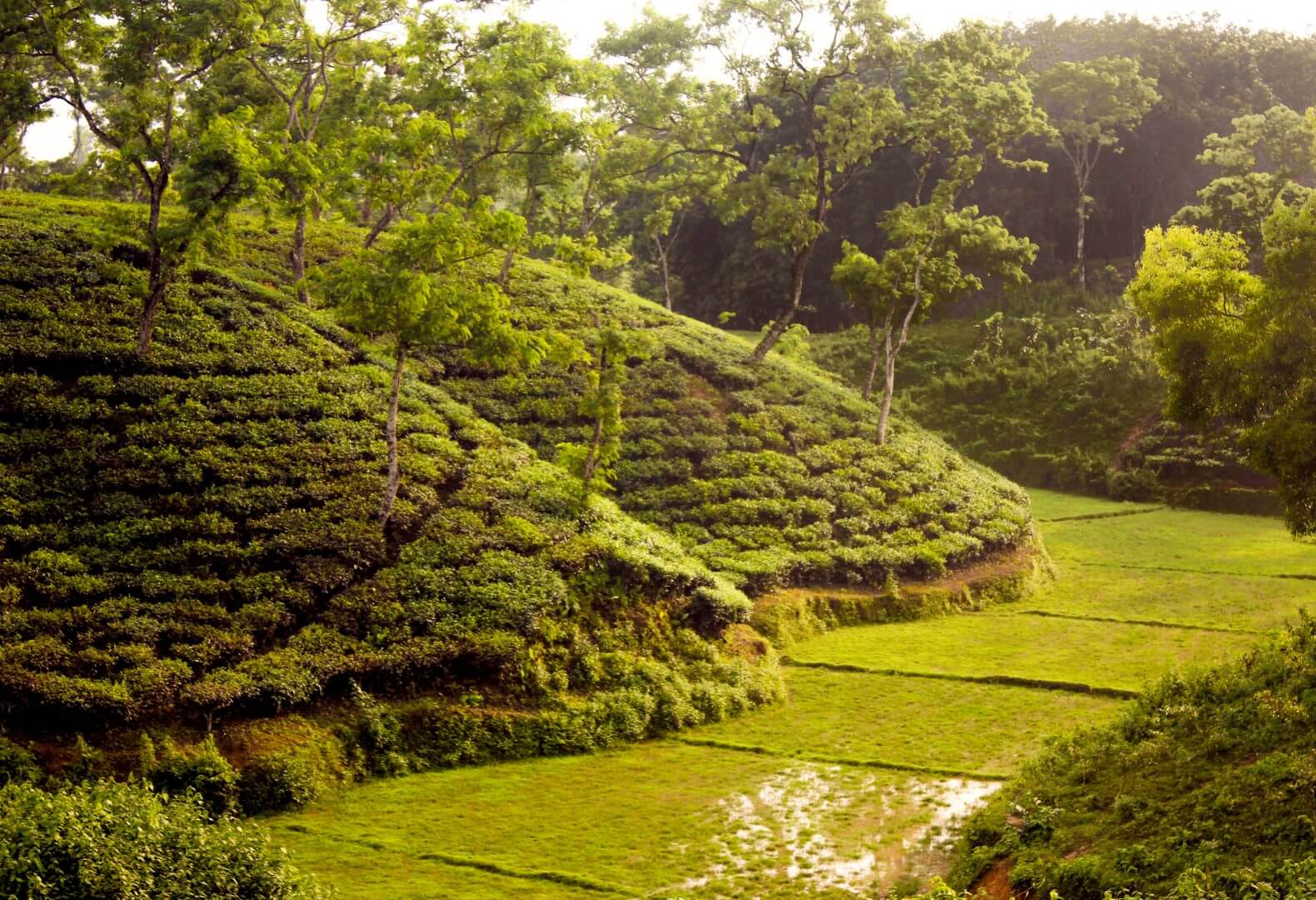A Journey Through Sylhet: Exploring the Heart of Bangladesh’s Tea Country
Related Articles: A Journey Through Sylhet: Exploring the Heart of Bangladesh’s Tea Country
Introduction
With enthusiasm, let’s navigate through the intriguing topic related to A Journey Through Sylhet: Exploring the Heart of Bangladesh’s Tea Country. Let’s weave interesting information and offer fresh perspectives to the readers.
Table of Content
A Journey Through Sylhet: Exploring the Heart of Bangladesh’s Tea Country

Sylhet, nestled in the northeastern corner of Bangladesh, is a region renowned for its lush greenery, vibrant culture, and captivating natural beauty. Often referred to as the "City of the Seven Lakes," Sylhet’s landscape is a tapestry of rolling hills, verdant tea gardens, and sparkling rivers, making it a destination that appeals to nature enthusiasts and cultural explorers alike.
Navigating the Tapestry: A Geographical Overview
Sylhet’s geographical position is a key factor in its unique character. Situated on the edge of the Indo-Burma biodiversity hotspot, the region experiences a tropical monsoon climate, characterized by warm temperatures and heavy rainfall. This fertile environment has fostered a rich ecosystem, making Sylhet a haven for diverse flora and fauna.
The Surma River, a major tributary of the Brahmaputra, flows through Sylhet, dividing the region into two distinct parts: the northern part, dominated by the Sylhet Division, and the southern part, encompassing the Mymensingh Division. This river, alongside its tributaries, plays a vital role in the region’s economy and culture, serving as a lifeline for transportation, irrigation, and fishing.
The Beauty of Sylhet: Unveiling the Landscape
Sylhet’s landscape is a testament to its natural beauty. Its rolling hills, covered in vibrant tea gardens, offer breathtaking panoramic views. The region is also home to several stunning waterfalls, including the renowned Madhabkund and Jaflong waterfalls, attracting visitors from across the country.
The seven lakes, known as the "Seven Sisters," are a unique feature of Sylhet’s landscape. These natural wonders, including the Ratargul Swamp Forest and the Hakaluki Haor, offer a glimpse into the region’s diverse ecosystem. The Ratargul Swamp Forest, a unique ecosystem of floating vegetation, is a haven for diverse bird species and serves as a vital habitat for various aquatic life.
Cultural Tapestry: A Blend of Heritage and Modernity
Sylhet boasts a rich cultural heritage, deeply rooted in its history and influenced by its diverse population. The region is home to a significant number of indigenous communities, including the Khasi, Garo, and Tripura tribes, each contributing to the vibrant cultural tapestry of Sylhet.
Sylhet’s cultural landscape is also shaped by its strong Islamic heritage. The region is dotted with numerous mosques, including the historic Jame Masjid, a testament to the city’s religious significance. The vibrant traditions of Sufism, a mystical branch of Islam, are deeply ingrained in Sylhet’s cultural fabric, with numerous Sufi shrines and gatherings attracting devotees from across the country.
Tea Gardens: The Heart of Sylhet’s Economy
Sylhet’s tea industry is a significant contributor to the region’s economy, earning it the moniker "Tea Capital of Bangladesh." The region’s fertile soil and favorable climate provide ideal conditions for tea cultivation, with numerous tea estates dotting the landscape.
The Sylhet tea industry boasts a rich history, dating back to the British colonial era. Today, the region produces a variety of tea types, including black tea, green tea, and white tea, renowned for their unique flavor and aroma. Visiting the tea estates, witnessing the tea-making process, and savoring a cup of freshly brewed Sylhet tea is a quintessential experience for any visitor.
Beyond the Tea Gardens: Exploring Sylhet’s Rich Heritage
Sylhet’s allure extends beyond its natural beauty and tea gardens. The region offers a wealth of historical and cultural attractions, offering a glimpse into the region’s rich past.
-
The Shrine of Hazrat Shahjalal: This revered shrine, dedicated to the Sufi saint Hazrat Shahjalal, is a significant pilgrimage site, attracting devotees from across the country.
-
The Sylhet Museum: This museum houses a collection of artifacts and exhibits showcasing the region’s history, culture, and art, providing insights into the diverse heritage of Sylhet.
-
The Sylhet City Corporation Building: This architectural marvel, constructed during the British colonial era, is a testament to the region’s colonial past and serves as a symbol of the city’s growth and development.
Exploring the Culinary Delights of Sylhet
Sylhet’s culinary landscape is a fusion of flavors, reflecting the region’s diverse influences. The cuisine is known for its rich use of spices, aromatic herbs, and fresh ingredients, resulting in a unique and tantalizing taste experience.
-
Biryani: Sylhet’s biryani is a culinary masterpiece, known for its aromatic rice, tender meat, and flavorful spices.
-
Fish Curry: The region’s abundance of freshwater fish has resulted in a variety of delicious fish curries, each with its unique blend of spices and flavors.
-
Sweetmeats: Sylhet is renowned for its sweetmeats, particularly the "Rosogolla" and "Mishti Doi," which are popular throughout Bangladesh.
Connecting Sylhet: Transportation and Accessibility
Sylhet is well-connected to other parts of Bangladesh through a network of roads, railways, and airports. The Osmani International Airport serves as the main gateway to the region, connecting Sylhet to major cities within Bangladesh and internationally.
The region is also well-connected by road, with a network of highways linking Sylhet to Dhaka, the capital city, and other major cities in the country. The railway network provides a convenient and affordable mode of transportation, connecting Sylhet to various destinations within Bangladesh.
Frequently Asked Questions (FAQs)
Q: What is the best time to visit Sylhet?
A: The best time to visit Sylhet is during the winter months (November to February), when the weather is pleasant and ideal for outdoor activities.
Q: What are some must-see attractions in Sylhet?
A: Some must-see attractions in Sylhet include the Madhabkund waterfall, the Jaflong waterfall, the Ratargul Swamp Forest, the Shrine of Hazrat Shahjalal, and the Sylhet Museum.
Q: What are some popular activities in Sylhet?
A: Some popular activities in Sylhet include trekking in the tea gardens, visiting the waterfalls, exploring the Ratargul Swamp Forest, and indulging in the local cuisine.
Q: Is Sylhet safe for tourists?
A: Sylhet is generally considered safe for tourists. However, it is always advisable to take basic safety precautions, such as being aware of your surroundings and avoiding isolated areas at night.
Q: What is the cost of living in Sylhet?
A: The cost of living in Sylhet is relatively affordable compared to other major cities in Bangladesh. Accommodation, food, and transportation are generally inexpensive.
Tips for Visiting Sylhet
- Pack light clothing: The weather in Sylhet is generally warm and humid, so pack light and breathable clothing.
- Carry insect repellent: Mosquitoes can be prevalent, especially during the monsoon season, so carry insect repellent to protect yourself from bites.
- Learn some basic Bengali phrases: While English is widely spoken in Sylhet, learning a few basic Bengali phrases can help you interact with locals.
- Try the local cuisine: Sylhet’s cuisine is a unique and delicious experience, so be sure to try some of the local dishes.
- Respect local customs and traditions: Sylhet is a culturally rich region, so it is important to respect local customs and traditions.
Conclusion
Sylhet, with its breathtaking landscapes, rich culture, and vibrant traditions, offers a unique and unforgettable travel experience. From the rolling hills of the tea gardens to the serene beauty of the lakes and waterfalls, the region is a haven for nature enthusiasts and cultural explorers alike. Its welcoming people, delicious cuisine, and rich history make Sylhet a destination that will leave a lasting impression on every visitor.







Closure
Thus, we hope this article has provided valuable insights into A Journey Through Sylhet: Exploring the Heart of Bangladesh’s Tea Country. We hope you find this article informative and beneficial. See you in our next article!
